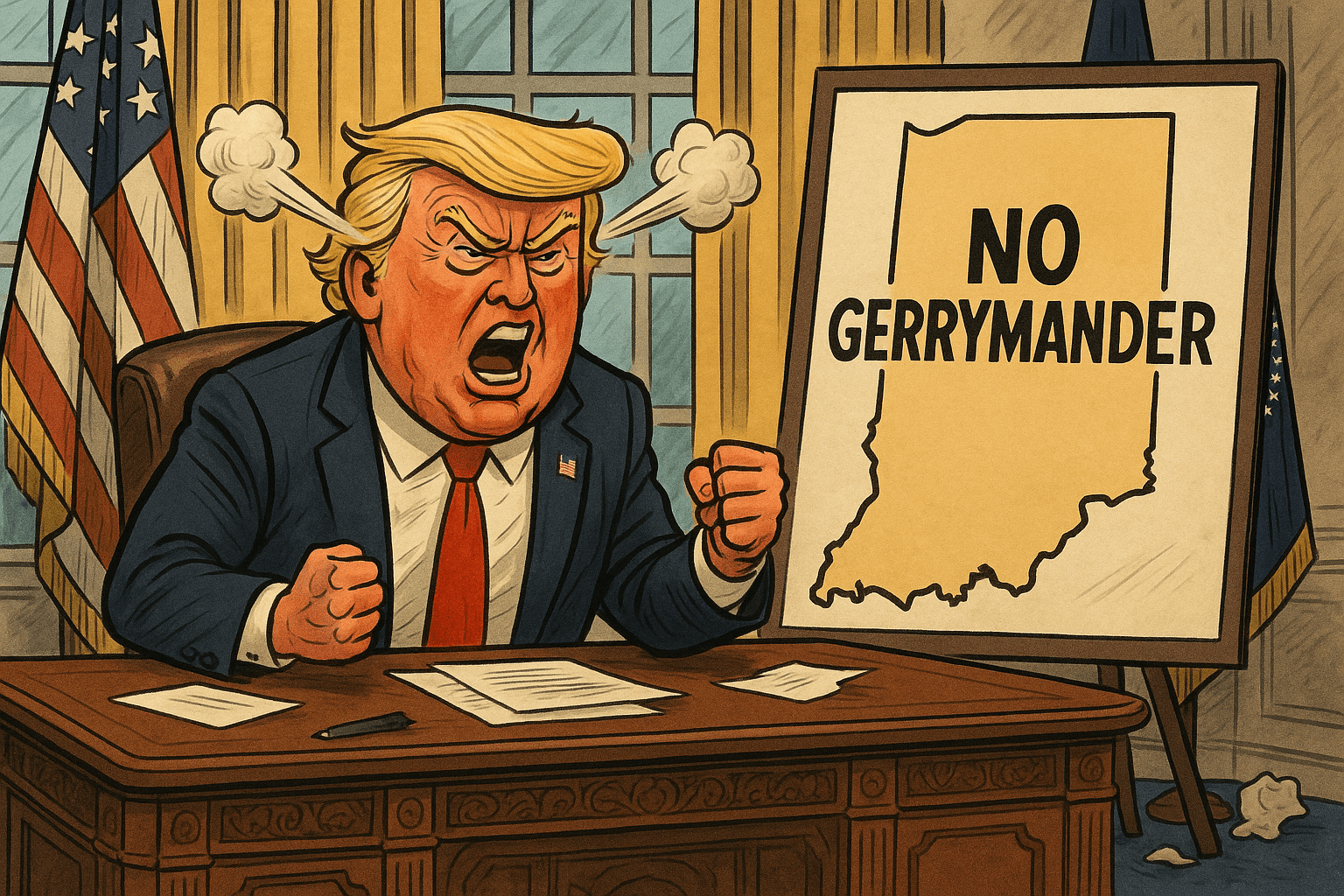The ‘2% Democracy’: New Jersey Primary Elections Need Complete Systemic Overhaul

TRENTON, N.J. - New Jersey will hold its statewide primary elections on Tuesday, June 10, to determine who will appear in the general election for the highest offices in the state, including governor. These are important elections – and yet they will be decided by a marginal percentage of voters.
Put bluntly, New Jersey is one of the most striking examples of how party control over elections leads to minority rule.
The field of candidates for governor is large. There are 11 candidates in total vying for a spot on the general election ballot: 6 in the Democratic primary and 5 in the Republican primary. If a voter is a registered party member, they have choices in this election. If not, they are out of luck.
Election reform advocates Sam Wang and David Daley wrote in an op-ed for The Philadelphia Inquirer that New Jersey rules dictate that the winner of the primary is whoever has the most votes. When there are 6 candidates on a single ballot, this means someone can win with well under a majority.
Especially when they are high-profile candidates, including the mayor of Newark, the mayor of Jersey City, a former mayor of Montclair, 2 sitting members of Congress, and a former state senator who served as the chamber’s president.
“Imagine if either nominee [in both primaries] wins with just 20% support,” they write. ”He or she will have quite a task energizing voters and unifying their party by November.” They make the case for ranked choice voting in New Jersey primaries to solve this issue.
Without question, Wang and Daley are right. It has been observed that New Jersey primaries tend to be examples of “low-energy democracy.”
Here’s the thing: That 20% figure is even worse when one considers that primary turnout in New Jersey tends to fall between 10-15% each election cycle. It was 14% in the 2024 presidential cycle and reached 10% just days before this year's June 10 primary.
In a year following an exhausting presidential election, one should not expect turnout to get much higher.
Now, take 10% of the electorate and divide that by 5 (i.e. 20%) – and what you are left with is a potential worst-case scenario in which the general election nominees for the highest office in the state are chosen by 2% of the electorate.
To even call this “democracy” plays fast and loose with the term. Party leaders and special interest groups capable of mobilizing a small handful of voters have the most power over election outcomes.
New Jersey holds closed partisan primaries, which means only registered Republicans and Democrats can participate in these taxpayer-funded and publicly administered elections. This locks out approximately 2.42 million registered unaffiliated voters.
To put this in context, in April 2025, there were about 2.45 million registered Democrats and a little more than 1.62 million registered Republicans. Not only does this mean independent voters are close to Democratic registration, but they are the second largest voting bloc in the state.
And yet, they are denied access to critical elections in which the most impactful choices are made and often outright decide the outcome of the races at-large because party leaders dictate the rules of the electoral process.
Make no mistake, the suppression of independent voters is intentional. When the Independent Voter Project challenged the constitutionality of New Jersey’s closed primary elections in court, the state responded by saying voters have an option: Join a party or don’t vote.
It’s a raw deal. Voters are forced to join private political organizations in order to vote in elections they pay for, even when millions within the electorate do not want to affiliate with either major party.
Advocates of ranked choice voting (RCV) say the reform helps resolve a serious problem in elections: vote splitting, which forces voters to think more about strategy than who they truly want to vote for and can produce winners with less than majority support.
Instead of a candidate winning an election even though 70-80% of voters did not vote for them, RCV accounts for who this majority prefers of the top candidates in a race without them having to sacrifice their top choice.
RCV in New Jersey primaries would mean candidates need 50%+1 of the vote to advance to the general election, but just like in New York City, it alone cannot solve the real problem that erodes democracy in the Garden State.
More choice in elections cannot be achieved in a system that intentionally suppresses the vote of 2.42 million people. As "low energy" as many partisans might be about voting for someone they didn't choose in the primary, imagine how independent voters feel who had no choice at all.
They have to wait for a minority of party members to make their choices for them while they foot the bill for the very elections the state says they have no right to vote in.
Creating a process of more choice, competition, and accountability requires a complete systemic overhaul, and while this does include how people vote for candidates, it has to start with primary elections to ensure every voter is treated equally and matters in the process.
 Shawn Griffiths
Shawn Griffiths






